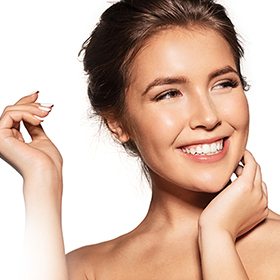Complements The importance of sunscreen
07/28/20

Did you know that skin cancer is the most common type of cancer in the United States? It is also one of the most preventable forms of the disease. Ultraviolet (UV) radiation from the sun is the main cause of skin cancer, so one of the best ways to prevent skin cancer is to protect your skin from sun exposure with the use of sunscreen.
The basics
The sunlight that reaches us is made up of two types of harmful rays: long waves (UVA) and short waves (UVB). Basically, UVA rays can age us and UVB rays can burn us. You should use a sunscreen that is broad-spectrum, meaning it protects against UVA and UVB rays. It is also best to choose a sunscreen that is water-resistant because most of our summer activities revolve around water and, of course, sweating.
All labels are different on sunscreens, but generally you need to apply it 30 minutes before going outside and reapply every two hours. Be sure to also check your sunscreens expiration date and toss it if it is expired. Make sure to wear sunscreen every day, even if the sun isn’t shining. People can end up with serious sunburns on overcast days since up to 80 percent of the sun’s UV rays can pass through clouds. It’s also important to know that UVA rays can pass through glass, so while you are driving or even sitting in front of windows, you should protect your skin.
Decisions, decisions
With so many choices out there, how do you pick a sunscreen that’s right for you? Many people believe the higher the Sun Protection Factor (SPF), the better, but what type protects the best? The higher the SPF ratings, the more UVB rays are blocked, though none offer 100 percent protection. While many focus on purchasing sunscreen with higher SPF numbers, experts have proven that SPF 15 sunscreen provides all the sun protection human skin requires. While many sunscreens offer higher SPF protection, once sunscreen goes past SPF 15, there is not much extra protection offered. To be safe, I always recommend at least an SPF 30.
Not only does sunscreen protect your skin from skin cancer, it also protects against photoaging, which appears as dark spots, sagging skin and wrinkles. If you’re looking for a product that does double duty, I recommend looking for sunscreens that, in addition to a broad-spectrum SPF, have anti-aging properties and moisturizer.
Bottom line
Whether purchasing your sunscreen at a physician’s office or at your local drug store, what is most important is that it is 1. At least 30 SPF, 2. Water resistant and 3. Works across a broad UVA/UVB spectrum. Never skip sunscreen!
This article originally appeared in the July issue of Town&Gown magazine.



